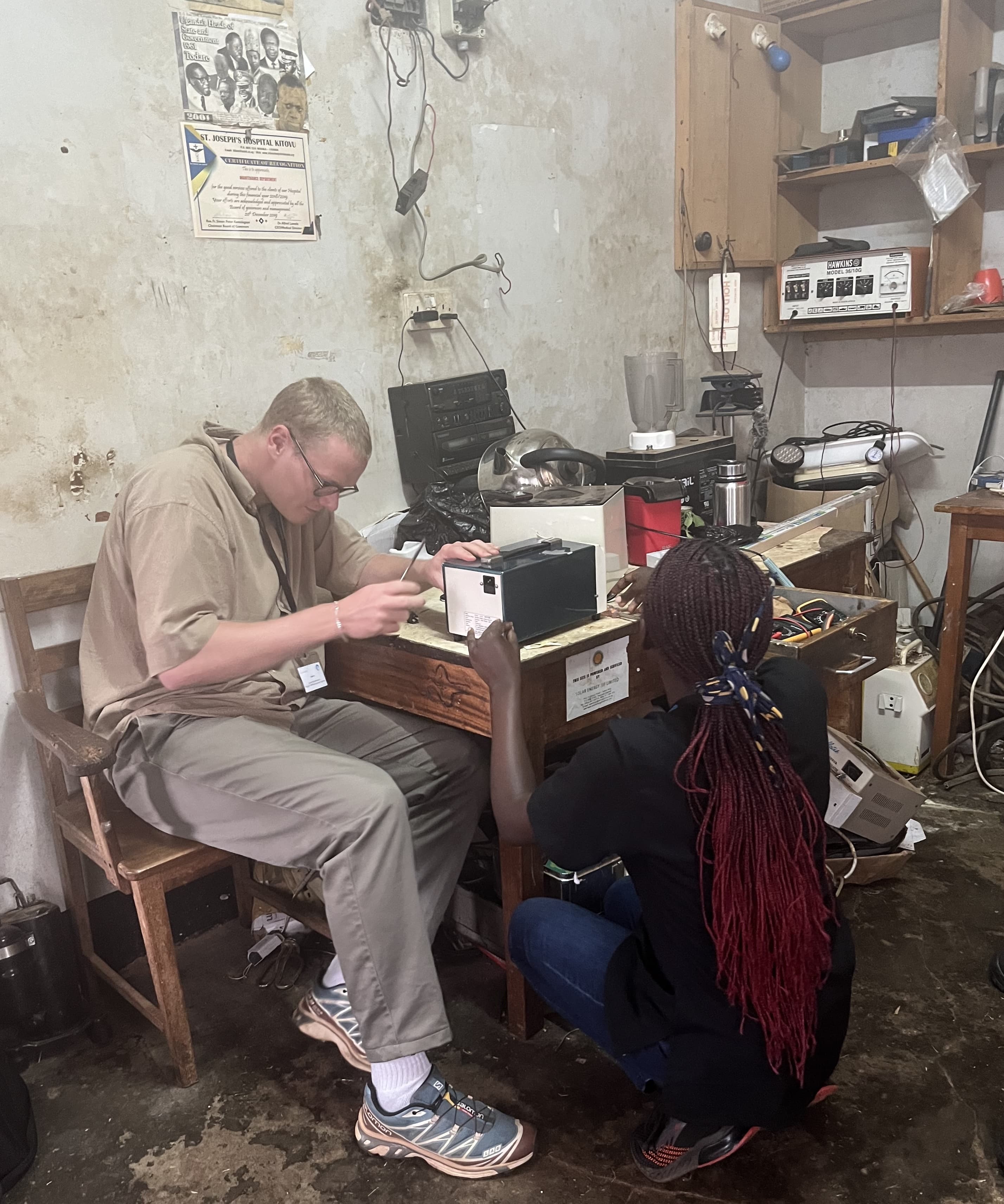For two months in 2024, ten engineering students had the unique experience of combining a study abroad programme with extraordinary service to others. After two months in Uganda and Guatemala, the ten DTU students were able to travel home and continue their engineering studies – knowing that their professionalism, humanity, and international curiosity would make a valuable difference for poor local populations in the two developing countries. The fact that during their stay, the students repaired 423 medical devices so that they could once again be used to treat patients is a lifelong memory of their months spent many kilometres away from home.
The interdisciplinary nature of the Medicine and Technology programme, with both medical and engineering subjects, made the students suitable candidates for Engineering World Health’s (EWH) projects last year in Uganda and Guatemala. The international non-profit organisation EWH aims to inspire, educate and empower the biomedical engineering community to improve healthcare in the world’s hotspots, contributing to the UN’s Sustainable Development Goal 3 on health and well-being. One of the ways the organisation does this is by sending students around the world to help impoverished communities repair life-saving medical equipment and assist with other health-promoting tasks.
Unique experience relevant to your studies
This is an extraordinary way to gain relevant international experience, and it is not the first time that the Otto Mønsted Foundation has supported an application for partial funding of travel expenses, field courses, etc. in connection with Danish students’ participation in EWH projects.
The support has not only contributed to improving local health conditions, but has also given the students a unique opportunity to develop professional and practical skills as future engineers and gain an understanding of other cultures through working and living with local staff and host families.
“I have been deeply influenced by this stay – professionally, personally and culturally,” says one of the participants, Emilie, after her summer placement with EWH.

A meaningful summer
The first month was dedicated to technical preparation in collaboration with local engineers from EWH. Here, the students gained both practical experience in local clinics and hospitals in and around Kampala or Quetzaltenango in Guatemala, and they received customised technical training. This consisted of daily lectures on medical devices, participation in laboratory exercises and more, enabling them to solve tasks ranging from constructing an extension cord to testing ECG devices.
The following month, the students helped repair and maintain medical equipment scattered across the country. After two months, they had repaired 423 pieces of medical equipment and gained an in-depth knowledge of the many challenges that many hospitals face. One of the hospitals lacked both running water and essential medicines.
“We visited and worked in several different hospitals in Uganda. They were all different, but what they all had in common was the primitive conditions. For example, it could easily happen in a maternity ward that there were not enough beds available, which could result in a woman having to give birth on the floor in the corridor in front of other patients and visitors,” says Andreas.
Noticeable difference for the locals
Alongside the repair work, each group also had a secondary project where the students helped solve other challenges at the local hospital. These included installing curtains to minimise the risk of infection in wards where infectious patients were in the same room as non-infectious patients, replacing faulty electrical sockets, installing new surgical lamps and refurbishing rusty bed legs in a children’s ward. The latter required welding, which was done by local welders who welded in flip-flops, without safety gloves and with sunglasses on their foreheads, says a somewhat surprised Julie.
In Mbarara, Uganda, the team helped install lamps in the dental chairs in the hospital’s dental clinic, which meant that the staff no longer needed to use their phones as a light for examinations. And in Guatemala, the students were also tasked with installing curtains to separate beds in the same ward, making furniture to store clothes and equipment, and installing patient information boards by the beds.
For Andreas in particular, the stay in Uganda has helped push his dreams for the future, he says.
“I dream of one day working with developing countries and the task of improving treatment conditions in countries that are significantly worse off than Denmark. If that dream is realised, my stay in Uganda has given me a great advantage, because now I can speak from experience about the conditions and how they can be improved,” he says.

